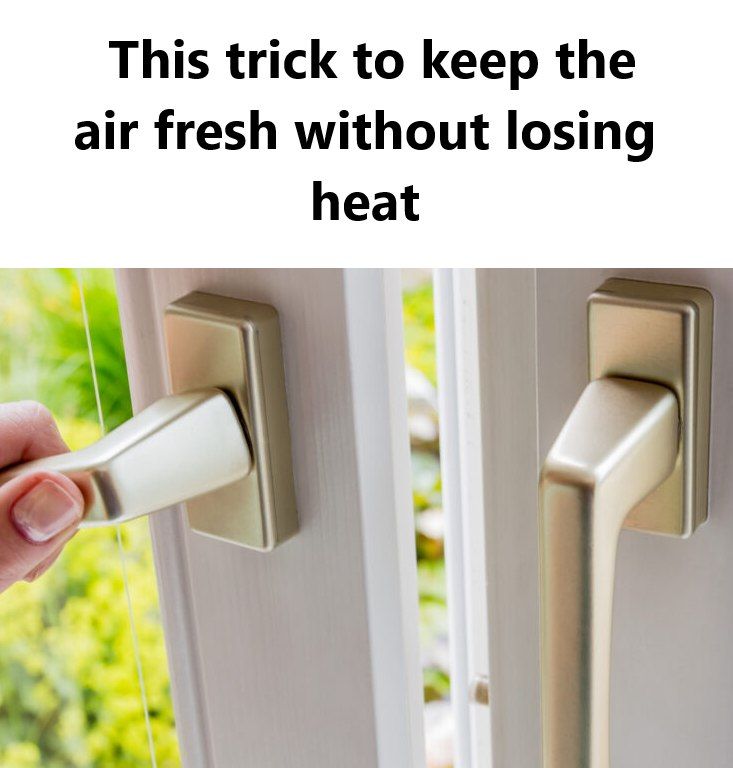ADVERTISEMENT
**Ventilating in Cold Weather: How to Keep Your Home Fresh and Healthy During Winter**
As the chill of winter sets in, it’s tempting to seal up your home tightly to conserve heat and keep the cold air out. However, keeping your home airtight can lead to poor indoor air quality and excess moisture buildup, which can cause a host of problems like mold growth, stale air, and even health issues. That’s where **ventilating in cold weather** becomes crucial. It might seem counterintuitive to open your windows when it’s freezing outside, but with a little strategy, you can ensure that your home stays fresh, healthy, and comfortable all winter long.
### Why Ventilating in Cold Weather Matters
During the winter months, our homes are often closed up to keep out the cold. While this helps maintain warmth and energy efficiency, it can also trap indoor pollutants, excess moisture, and stale air. Without proper ventilation, these issues can accumulate, leading to poor air quality and potential health concerns. Here’s why ventilation is so important in cold weather:
1. **Moisture Control:** Cooking, showering, and even breathing release moisture into the air. In winter, when homes are more airtight, that moisture has nowhere to escape, leading to condensation, which can promote mold growth and damage walls and furniture.
2. **Improved Air Quality:** Even in the winter months, indoor pollutants such as dust, pet dander, and volatile organic compounds (VOCs) from cleaning products, furniture, and paint can accumulate. Ventilation helps clear out these pollutants and brings in fresh, clean air.
3. **Comfort and Health:** Stale air can cause discomfort, fatigue, and headaches. Proper ventilation allows for a steady flow of fresh air, which can make your home feel more comfortable, and improve overall health by reducing allergens and irritants in the air.
### How to Ventilate Your Home Effectively in Cold Weather
Ventilating in winter doesn’t mean you have to sacrifice warmth or comfort. There are several ways to maintain good airflow without letting all your heat escape. Here are a few strategies to help you ventilate your home effectively in cold weather:
#### 1. **Open Windows for Short Periods**
One of the easiest ways to ventilate your home in cold weather is to open your windows for short periods. While it may seem like a waste of heat, opening the windows for just 10-15 minutes a couple of times a day can make a huge difference in reducing indoor moisture and improving air quality. Try to open windows that are opposite one another to create cross-ventilation, which allows for better airflow.
#### 2. **Use Exhaust Fans**
If you have bathrooms or kitchens equipped with exhaust fans, use them regularly to vent excess moisture. After showering or cooking, let the fans run for 15-20 minutes to expel moisture and prevent it from condensing on cold surfaces. This helps reduce the risk of mold growth and maintains a more comfortable humidity level inside your home.
#### 3. **Use a Mechanical Ventilation System**
If you want to ensure that your home is constantly receiving fresh air without opening windows, consider installing a mechanical ventilation system. These systems, such as **heat recovery ventilators (HRV)** or **energy recovery ventilators (ERV)**, bring in fresh air from the outside while filtering it and warming it up using the heat from the exhaust air. These systems are designed to help you maintain a steady supply of fresh air while minimizing energy loss.
#### 4. **Crack Open a Window at Night**
If your home tends to get stuffy while you’re sleeping, consider cracking open a window for a few hours each night. This will help let in fresh air, especially if you’ve been cooking or running a humidifier during the day. You don’t need to open it wide—just enough to let the air circulate. You’ll be amazed at how much more refreshed and comfortable you feel when you wake up.
#### 5. **Consider a Dehumidifier**
Winter weather often means a dry indoor environment, but it can also bring moisture from snow, rain, or humidity outside. Using a **dehumidifier** can help regulate the humidity levels inside your home, preventing moisture buildup while still allowing for ventilation. This is especially helpful in areas like basements or bathrooms where moisture tends to accumulate.
#### 6. **Check Your Air Filters**
Dirty air filters can impede proper ventilation by restricting airflow, making it harder for your heating system to circulate air efficiently. In winter, when your heater is likely running more often, it’s important to change or clean your air filters regularly. Doing so will improve airflow and ensure your home gets the fresh air it needs.
7. **Keep Vents Unblocked**
Make sure that vents and air returns are free from obstructions like furniture, rugs, or curtains. Blocked vents can limit the amount of fresh air circulating throughout your home. If your home has a central heating system, this will help your ventilation system work efficiently.
For Complete Cooking STEPS Please Head On Over To Next Page Or Open button (>) and don’t forget to SHARE with your Facebook friends
